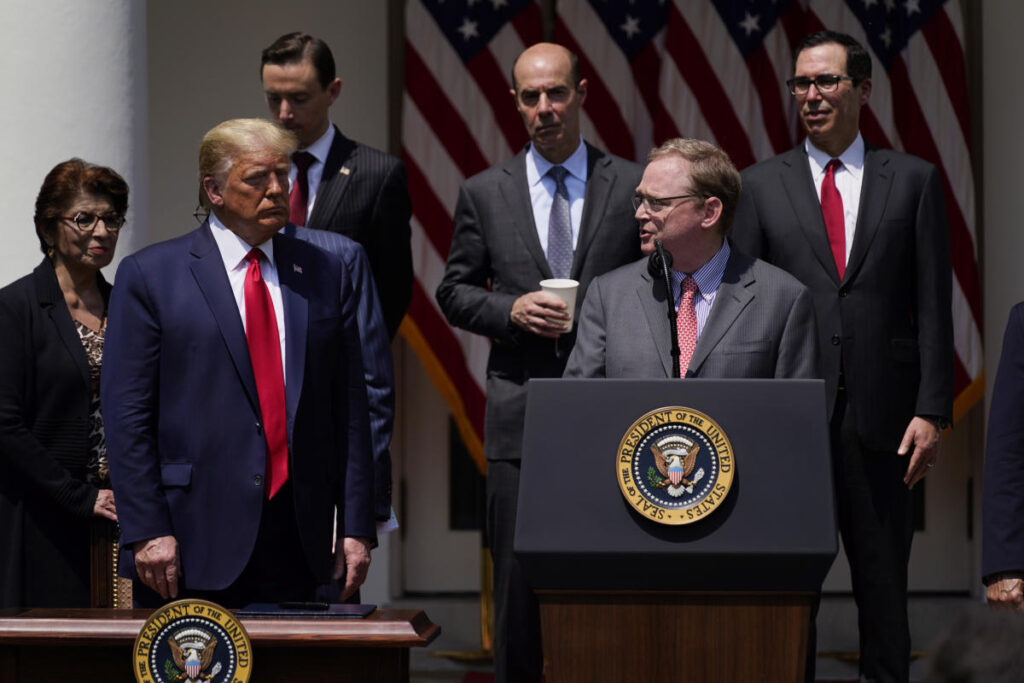In a significant move aimed at shaping his economic agenda, President-elect Donald Trump has appointed seasoned professionals with deep-rooted experience in Washington and crucial economic issues to his economic team. Among his recent nominations, Jamieson Greer was selected as the U.S. trade representative, while Kevin Hassett was chosen to direct the White House National Economic Council. These appointments show Trump’s intent to bolster public confidence in the economy, especially after his prior administration’s contentious economic policies. Alongside these picks, Trump also announced others in key positions, reflecting a blend of continuity and expertise in navigating complex economic landscapes.
Jamieson Greer, who previously played a vital role as chief of staff to former trade representative Robert Lighthizer, brings an expertise in trade negotiations and tariff imposition. His background as a trade attorney positions him well to handle direct negotiations with foreign governments and manage disputes relating to trade agreements. Notably, Greer’s experience during Trump’s first term included implementing tariffs on China, underscoring his commitment to American manufacturing and labor interests. His subsequent comments indicate an alignment with the view that tariffs can help protect U.S. jobs, particularly against unfair trade practices and foreign competition. This perspective will be critical as he assumes the trade representative role amid ongoing discussions about the balance of trade and international agreements.
Trump’s economic strategy appears to heavily emphasize tariffs, with the president-elect recently pledging significant new tariffs on imported goods, including a proposed 25% tariff on products from Canada and Mexico, and an additional 10% tax on goods from China. This aggressive trade policy reflects Trump’s longstanding commitment to favoring American workers, a mantra that resonated throughout his campaign. Should Greer be confirmed, he would be tasked with stewarding these policies and navigating the complexities of international trade relations as the country seeks to fortify its economic position globally.
Complementing Greer’s appointment is Kevin Hassett, who previously served as the chairman of the Council of Economic Advisers in the Trump administration. Hassett is recognized for advocating tax cuts and is expected to play a crucial role in addressing economic recovery in the aftermath of inflationary pressures attributed to the prior Biden administration. Trump has expressed confidence that Hassett will spearhead efforts to sustain and enhance the tax cuts initiated in 2017, which are set to expire after 2025. This continuity is central to Trump’s economic vision, emphasizing the importance of reducing tax burdens to stimulate economic growth and improve living standards for American families.
Hassett, with an academic background in economics and prior affiliation with the American Enterprise Institute, brings extensive experience in analyzing economic policies. He previously noted the positive impacts of the tax cuts on household incomes, but the administration faces the challenge of managing increasing budget deficits that emerged as a consequence of these tax policies. As Trump’s second term unfolds, the administration’s ability to reconcile tax cuts with fiscal responsibility will be scrutinized, particularly given prevailing concerns about inflation and national debt.
As part of the broader array of appointments, Trump has also chosen John Phelan as Navy Secretary. Phelan, a private investor and art collector with a significant background in finance, co-founded a private investment firm and has close ties to notable figures in the technology industry. However, the specifics of his military experience remain unclear, raising questions about his qualifications for a role traditionally occupied by those with naval or military background. Overall, these strategic appointments highlight Trump’s focus on assembling a skilled economic team capable of addressing the immediate challenges facing the U.S. economy, while also setting a foundation for future growth.

